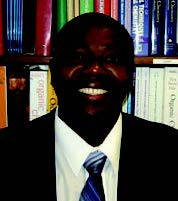It’s still the most wonderful time of the year for many, even during a global pandemic. However, this might not be the year for the large family gatherings and traveling typically associated with the holidays.
As the Centers for Disease Control and Prevention (CDC) states on their website, cases rise as people spend more time gathering indoors due to the cold weather. New Jersey Governor Phil Murphy signed an executive order, effective Nov. 17, lowering the indoor gathering limit from 25 to 10 people as COVID-19 cases rise in the state.
 Infectious disease expert Dr. Anthony Fauci told USA Today, “As we get into the colder weather, we should really think twice about these kind of dinner parties where you’re not sure of whether the people that are in your bubble (are safe). Then you’re going to start seeing these unanticipated infections related to innocent home gatherings, particularly as we head into the holiday season.”
Infectious disease expert Dr. Anthony Fauci told USA Today, “As we get into the colder weather, we should really think twice about these kind of dinner parties where you’re not sure of whether the people that are in your bubble (are safe). Then you’re going to start seeing these unanticipated infections related to innocent home gatherings, particularly as we head into the holiday season.”
Nikki Ortt, a senior English student, is one of many students avoiding large family get-togethers during this untraditional holiday season. “I’m just celebrating with my immediate family in my household,” she said. “This year due to COVID, we aren’t going through with our Christmas Eve tradition in person…I don’t think my grandma will be celebrating with us this year.”
“On a normal year, my house will be filled usually with at least 15 people, but this year only five,” said senior English student, Hunter’Rose Kruse, who is only celebrating with her family that lives at home.
Students like Ortt and Kruse have had to find creative new ways of staying connected with extended family. “We are going to do Secret Santa via Zoom and have the presents dropped off at the houses secretly and open the presents on Zoom,” Ortt said.
Specialist Professor of Nursing, Patricia Dempsey, also recommends virtual holiday celebrations. She said, “Winter break has traditionally been a time to visit friends and family. This year, instead of gathering inside houses, consider meeting friends and loved ones over Zoom or FaceTime. Social distance as much as possible. An elbow bump instead of a hug means, ‘I care about your safety.’”
While some students are avoiding gatherings altogether, others are limiting who they see during the holidays. “My mom’s family is super small (eight people), so we are having a normal Christmas,” said Shannon McGorty, a senior English and communication student. “But my dad’s family is not having Christmas.”
Traveling is also a concern as winter break approaches, especially for out of state students. Thanksgiving travel rates hit a new high of over 100,000 people in one day, according to TSA checkpoint travel numbers from tsa. gov, a trend many are worried will continue into the holiday season.
“The NJ governor has issued a travel advisory to avoid essential travel,” said Kathy Maloney, Director of Health Services. “If travel is unavoidable, it is recommended that persons get COVID tested before and after travel.”
Maloney urges students to follow CDC and state guidelines on safe traveling. Specifically, travelers should consider getting tested one to three days before the trip and three to five days after the trip, according to nj.com, the official site of the state of New Jersey. “If travelers test positive, they should self-isolate for at least 10 days and should postpone travel during that time. If travelers test negative, they should quarantine for a full seven days after travel,” the website states.
Maloney recommends maintaining the same safety guidelines this holiday season that the public has been expected to follow since the beginning of the pandemic in March—wearing a mask, washing your hands, and avoiding social gatherings. She also recommends getting plenty of sleep, eating a balanced diet, getting exercise, engaging in stress-relieving activities, and getting a flu vaccine. In fact, the CDC urges the public to receive a flu shot before traveling.
“If someone is positive for COVID, they will become more susceptible to contracting influenza,” said Maloney. “The reverse is also true. If someone has influenza, they can become more vulnerable to COVID. In addition, it is possible for people to have both viruses concurrently. That would amount to a tremendous attack on the person’s immune system increasing the probability of the individual becoming gravely ill.”
If travel is avoidable, staying inside and spending the holidays with only immediate family members comes with the lowest risk of spreading and contracting the virus, based on advice from health experts. Students are still finding ways to stay connected with family even if they cannot see them in person, whether it’s a virtual dinner or a virtual Secret Santa.
PHOTOS TAKEN by Melissa Badamo




